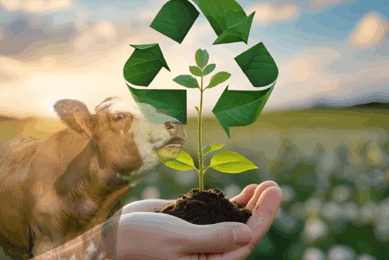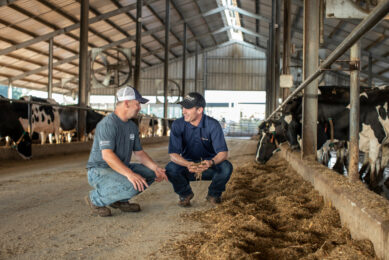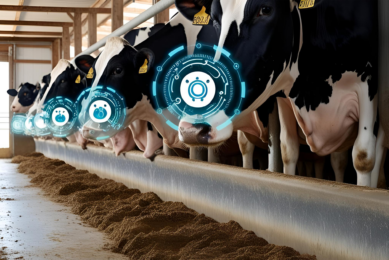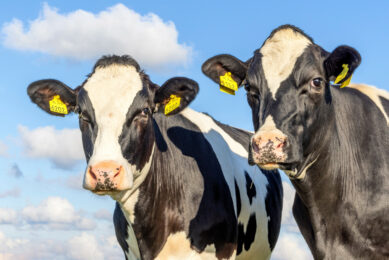A2 milk big business in Brazil
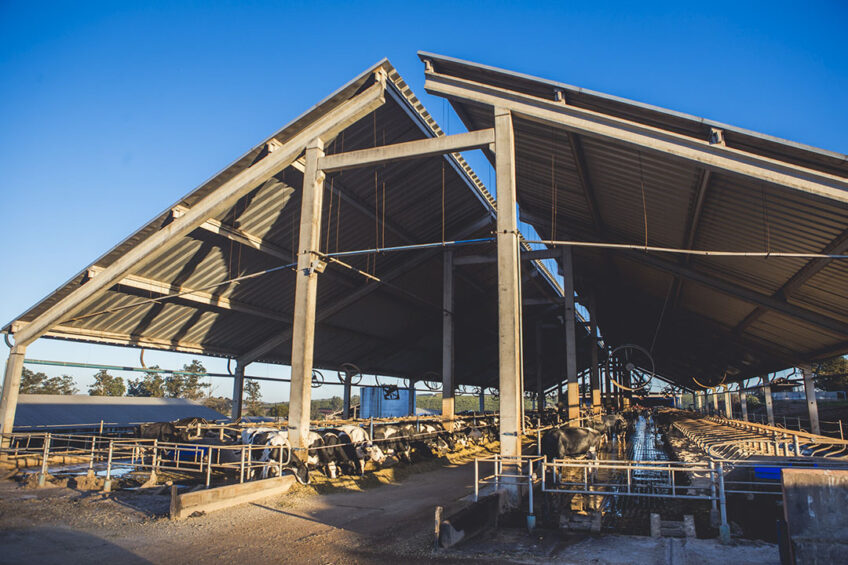
Santa Rita Farm focuses on milk production and adopting technologies in order to add value and be sustainable. Founded in 1945, in Descalvado city, Brazil, the farm is also internationally prized for its A2 milk.
Currently, Santa Rita Farm has 4,800 cows (all Holstein, 2,000 lactating) producing 24,000 tonnes of milk per year, which is 10 times higher than 40 years ago. The farm processes this milk into several dairy products. “It is a family business that values sustainable production, including the social and economic aspects. With our products, comes a taste of our history and essence,” says Roberto Jank, president at Agrindus, which owns the farm. The property has been dedicated to milk for 75 years, but in the 1950s started to industrialise products, firstly calcium caseinate for the pharmaceutical industry. Then Santa Rita Farm produced cheese in the 1960s, milk of type B in the 1970s through to the 1990s and then type A in 1998. During this time, the family created their own brand ‘Letti’ and, in 2018, invested in A2 milk. “Our milk production began many decades ago but intensified after the 1980s. That means modern infrastructure, a factory, and high standards for animal welfare, among other things,” says Jank.

Nowadays, Santa Rita Farm uses around 600 hectares for milk production, with most of that area dedicated to crops for cattle fodder. The harvests are totally fertilised using fertirrigation (manure from the stables is used to irrigate the crops), without chemical fertilisation. “Our products are 100% made on the farm, from milking to filling. Our cows are Holstein, all born here, and are located 30 metres from the processing factory. So, all the milk is fully tracked and bottled rapidly, in less than 24 hours,” highlights Jank.
PROFILE
About: Run by Roberto Jank, president at Agrindus. The farm has 250 employees and operates on 2,000 hectares of land.
Farm: Santa Rita Farm, owned by Agrindus, is the third largest milk farm in Brazil
Location: Descalvado city, Brazil
Cows: 4,800 cows (all Holstein, 2,000 lactating)
Milk: Produces A2 milk and A1 milk (for other dairy companies)
Cashing in on the A2 milk market
In basic terms, A2 milk production depends on the cow’s genome. Cows have genes A1 A1, A1 A2 and A2 A2, and it is possible to select animals to produce only A2 milk. The A1 gene is more frequent in the Holstein breed than in the Zebu and the Guernsey breeds.
The first to cash in on the A2 milk market was a company in New Zealand. In 2015, one of its patents expired, opening the door to competitors. But even before then some Brazilian producers were already preparing themselves. Beta-caseins represent 30% of the proteins in the milk and have a complex composition. In some consumers the A1 protein can provoke allergic reactions and have an impact on digestion.
It is a compound known to be difficult to digest by humans and that promotes incomplete assimilation. Some people have discomfort when they drink normal milk, something very similar to the discomfort of lactose intolerance,” Jank reports.
Since 1967, Jank’s family has been selecting genetics for their herd, but the focus became A2 A2 cows later on, in 2017. The group selected some animals, multiplied them and a few months later became certified as the first milk farm in the country to produce a 100% A2 milk.
“We use the same structure but split the cows by their genetics. We also produce A1 milk to sell to other dairy companies in Brazil. Our A2 milk is entirely used in Letti’s products in our own factory,” Jank adds. As a pioneer of this type of milk in Brazil, Santa Rita Farm has received the “Best Initiative in the Agricultural Sector” award in Spain. The prize aims to recognise agricultural projects that stand out for being innovative in production and marketing systems. Promoted by Mapfre Foundation, the award was delivered to Jank by the Spanish Emeritus Queen Sofia, personally, in 2019.

Structure of the Santa Rita Farm
The Santa Rita Farm is the third largest milk farm in Brazil and has 5 certifications for quality and sustainability. They have 8 stables in order to guarantee comfort to their cows, which are all born and raised there. The milking parlour has 60 places and is a side-by-side model. From the parlour, it is just 30 metres to the dairy factory. “We can send the milk from cows to pasteurisation easily; it is very rapid and efficient. This way, the bacteria count in those products are very low,” Jank explains.
From the A2 milk, the brand Letti produces a number of dairy products. Among them are butter, cheese curd, yogurts, milk jam, coffee with milk, milk cream and different milk categories.

The A2 milk is gaining ground in Brazil. We increased production 40% last year because this product adds value and is better for consumers and for the industry. I strongly believe in this product as a trend for the future,” Jank comments.
Additionally, Agrindus also plans to supply other milk producers with A2 cows, expecting to sell around 300 heifers this year. There are 20 properties in the country that are specifically focused on A2 milk, which is a total of 35 million litres per year. This is still less than 1% of Brazil’s total milk production, but the sector is already moving to conquer a larger share of the market.

Sustainability pillars
Letti’s production values sustainability and its 3 pillars: environmental, social, and economic. All of them are achieved through certified good practices.
As mentioned above, all the fodder used to feed the animals is also 100% planted at Santa Rita Farm. Another aspect of sustainability, for example, is the “reverse logistic” process to ensure recycling of all milk and dairy product packages.
Farm reports
To read about more farm around the globe, click here…
Regarding animal welfare, the cows live under a free-range housing system that allows them to choose to be in the solarium (usually on cool, sunny days) or inside the stables (usually on rainy days). “Our priority has always been animal welfare. All stables are equipped with fans, sprinklers, sand beds, water and nutritious silage, balanced 24 hours a day, and scratchers,” says Jank.
Furthermore, Santa Rita Farm is home to 56 families that have the opportunity to live and work there. “We are proud to be part of the 250 people waking up every day to ensure that the milk and products are 100% fresh, with an unmistakable flavour and a touch of our history,” he concludes.
Join 13,000+ subscribers
Subscribe to our newsletter to stay updated about all the need-to-know content in the dairy sector, two times a week.



